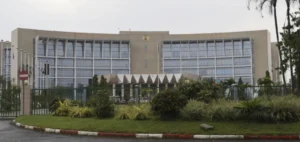The Sharara oil field, Libya’s largest, has been undergoing a partial suspension of production since August 4.
Demonstrators have invaded the operations room, according to S&P Global Commodity Insights.
Sharara, which has a maximum capacity of 320,000 barrels per day (b/d), was recently producing 250,000 b/d.
Production losses are estimated at between 28,000 and 70,000 b/d, although exact current output remains uncertain.
A representative of the National Oil Corporation (NOC) indicates that the disruptors are aiming to reduce production to zero.
The Libyan National Army (LNA), under the command of Khalifa Haftar, has approved the partial closure.
Haftar’s troops have regularly imposed blockades in recent years, reducing Libyan production to 650,000 b/d by summer 2022.
These blockades have eased with the appointment of Farhat Bengdara as Chairman of the NOC.
Impact of political unrest
This latest disruption follows a two-week shutdown of the field in January.
At the time, Libya declared force majeure after demonstrators in the southwest Ubari region shut down the field to protest against rising fuel prices and lack of economic opportunities.
Sharara is a joint venture between the NOC, TotalEnergies of France, Repsol of Spain, OMV of Austria and Equinor of Norway.
The companies have not yet responded to requests for comment.
Production challenges and prospects
Libya has the largest oil reserves in Africa, estimated at 48 billion barrels, and plans to increase production in the medium term.
Earlier this year, Farhat Bengdara, Chairman of the NOC, announced plans to increase production to 2 million b/d within five years, through 45 new and old field projects.
A round of tenders is scheduled for late 2024, but political instability and difficulties in attracting finance threaten these ambitions.
Since February 2024, relative political stability has kept Libyan crude production at around 1.15 million b/d.
In June, production was 1.16 million b/d, up slightly from 1.15 million b/d in May, according to Commodity Insights’ OPEC+ production survey.
However, this output remains below the 1.6 million b/d produced before the fall of Moammar Gaddafi in 2011.
Quality of Libyan crude
Libyan crude is generally light, with low sulfur content, producing a good quantity of middle distillates and gasoline.
This makes it particularly prized in the Mediterranean and North-West European markets.
Despite the challenges, the NOC continues to aim for increased production to meet growing demand on international markets.
Partner companies, although affected by the disruption, remain committed to long-term projects.
The impact of the disruptions at Sharara highlights the continuing challenges Libya faces in stabilizing its oil production in an unstable political context.
The NOC’s ability to meet its ambitious targets will largely depend on resolving internal tensions and attracting new investment.





















